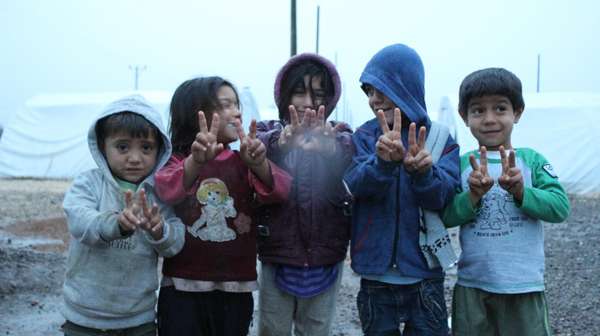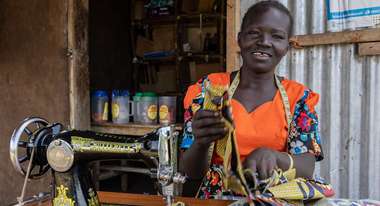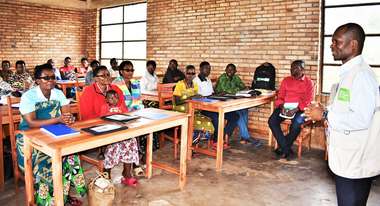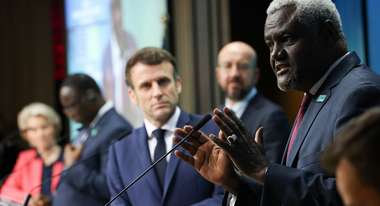Welthungerhilfe and its partners support people in Syria, Türkiye and Lebanon.
Prospects for Syrian refugees in Lebanon
Training programs for Syrian refugees in Lebanon are strengthening the resilience of the people, communities and national institutions.
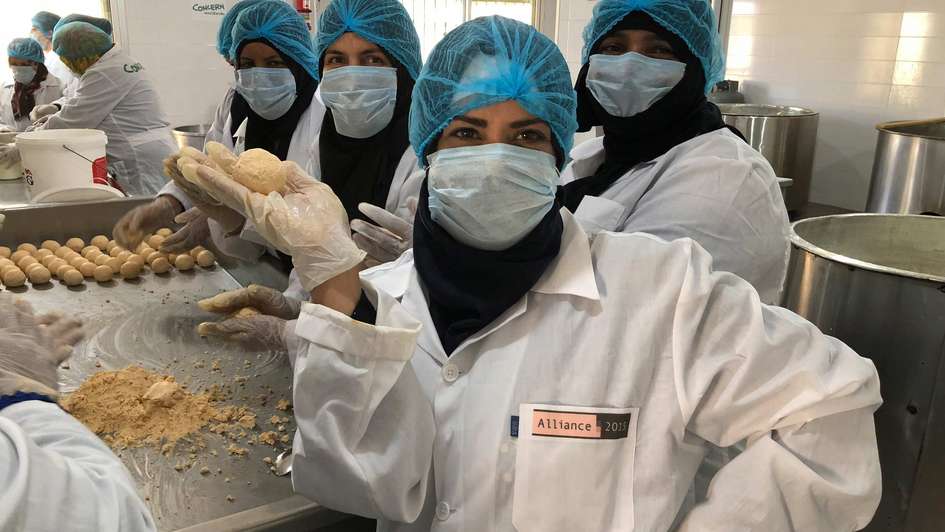
“I'm worried about the future. I'm worried that I won't be able to educate and care for my children.” As she speaks, Hana's cheerful face becomes stern. Six years ago she fled her home in Syria with her husband and children. They have found refuge in neighbouring Lebanon - but concerns about the future remain.
Every sixth inhabitant in Lebanon is from Syria
Almost one million Syrians have fled to Lebanon from violence in their country since the outbreak of civil war in 2011. This presents a great challenge for the small country – at that time Lebanon had only about 4.6 million inhabitants. The rapid population growth of around 30% and the fact that almost every sixth inhabitant fled their home in traumatic circumstances poses economic and social challenges for Lebanon.
Hana's husband was fortunate to find enough work to make ends meet for the family. However, other Syrian refugees have been living in Lebanon for years in appalling conditions. About one third have insufficient access to food while more than 68 percent live below the poverty line. Very few Syrians earn money due to a lack of work permits. Jobs are also hard to find - even before the Syrian crisis, Lebanon's economic situation was bleak.
Prospects for Syrian refugees and Lebanese host community
It is understandable that this also leads to social conflicts. Competition for limited job opportunities and perceived disparity in levels of support generate hostility and violence in some areas. In order to counteract the increasing tensions and conflicts, both Syrian refugees and the Lebanese host communities require prospects.
This is where Welthungerhilfe comes in: together with its Alliance 2015 partner Concern and local partner organisations, it has developed measures to strengthen the resilience of the people, communities and national institutions affected by these tensions. In addition to the expansion of equal access to water, community members also receive educational opportunities and training, for example, which help them build their own businesses and take control of their lives.
Dairy products provide independence for women
One of these training programmes supports Syrian and Lebanese women in expanding their skills in the production of dairy products. “The women already know how to process milk to produce yoghurt and cheese. The project is about developing their traditional methods, communicating hygiene standards and helping them market their products,” explains Concern employee Sara Tayar. The participants received training in all stages of production, from animal husbandry and welfare to packaging and marketing methods. “We show the women that they can build their own business and be independent,” says Sara Tayar.
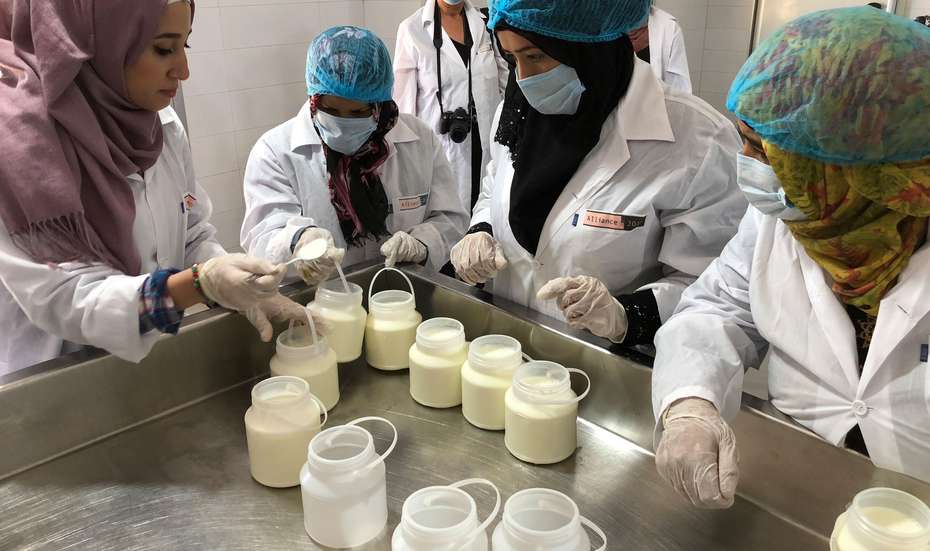
Hana is one of the training participants. “I've been able to improve the quality of my dairy products and hope to build a second source of income for my family.” Kawsar, another participant, adds: “I want to further develop my skills so that I can finally provide security for my family with my own store or dairy farm when I return to Syria”. For these women, hope remains of someday returning to their homeland.
Welthungerhilfe’s work in Lebanon:
- 14,000 Syrian and Lebanese women and men receive skills training and psychosocial support to strengthen their resilience and overcome trauma;
- 7,916 people receive agricultural training and assistance in accessing local markets to sell their products.





